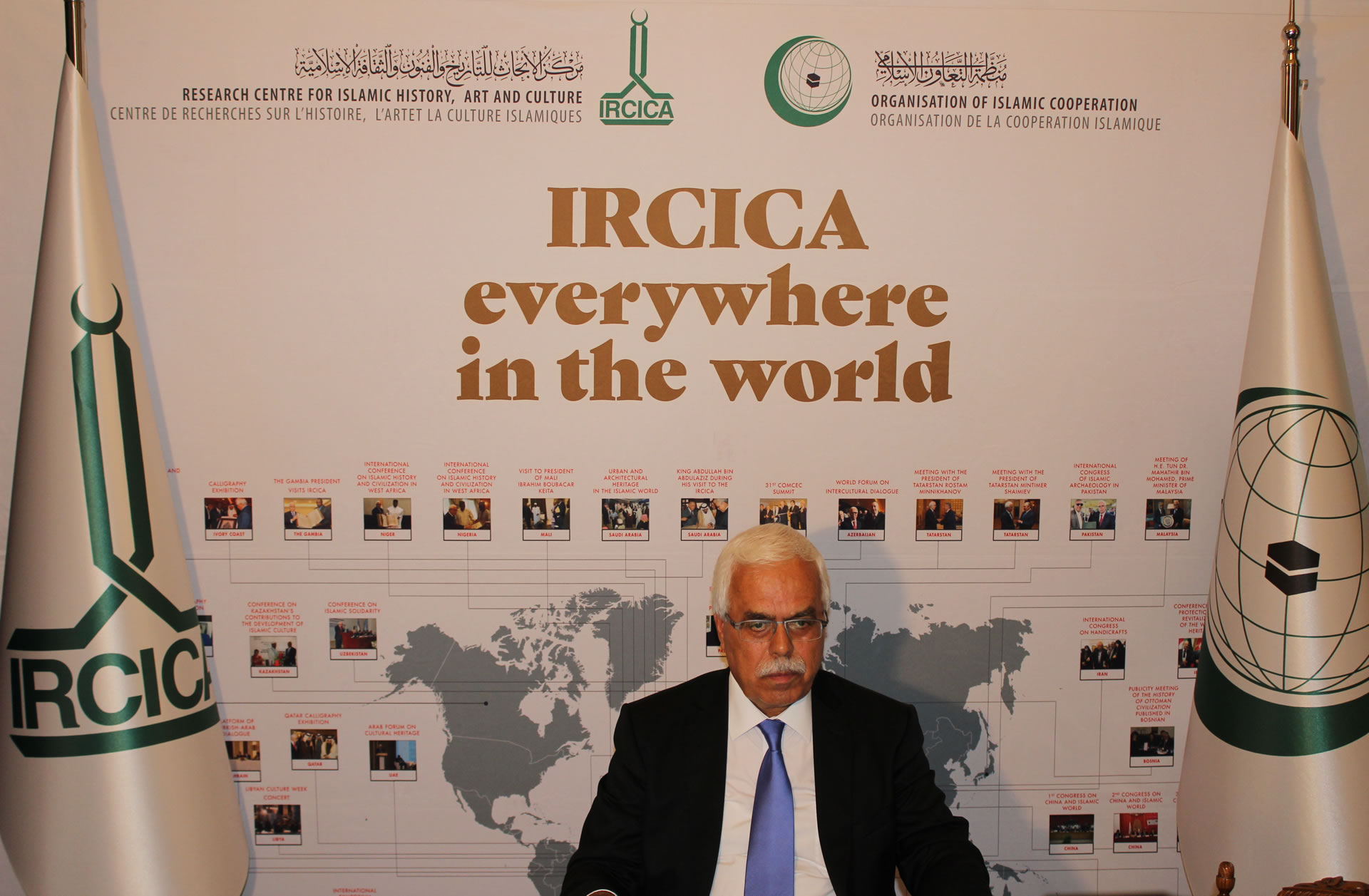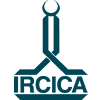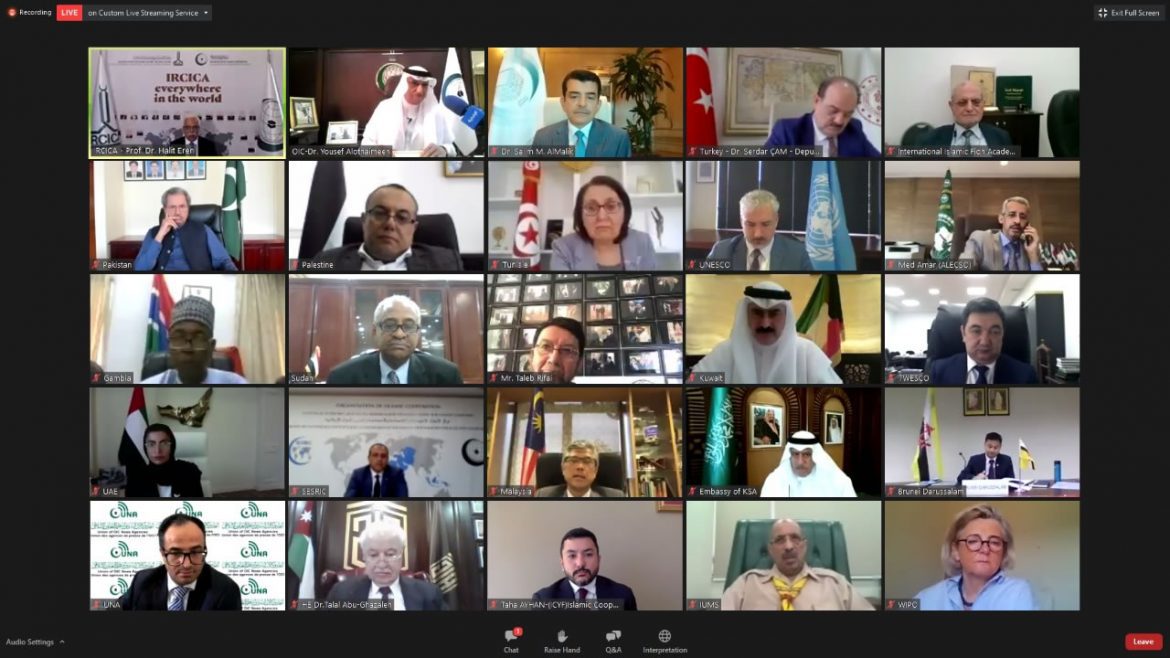Addressing the Extraordinary Virtual Conference of Culture Ministers of the OIC Member States held under the theme “Sustainability of Cultural Action in the Face of Crises (COVID-19)”, IRCICA’s Director-General, Prof. Dr. Halit Eren, reaffirmed that culture is one of the sectors severely hindered in consequence of the pandemic but at the same time, culture acquired added functional importance for the vast possibilities of virtual activities, contacts and exchanges it offers. The Zoom Conference, held on June 17th, 2020, with the participation of 50 countries and 22 international organizations, was hosted by the Islamic World Educational, Scientific and Cultural Organization (ICESCO), an OIC specialized institution, and chaired by HE. Noura Al Kaabi, Minister of Culture and Knowledge Development in the UAE.
The OIC Secretary-General, Dr. Yousef Al-Othaimeen, highlighted the repercussions of COVID-19 on the cultural sector. “Since the OIC countries started taking precautionary measures to curb the spread of the pandemic, the field of culture has been negatively affected”, he said. For his part, Dr. Salim M. AlMalik, ICESCO Director-General, emphasized that the current global transformations in various fields make it imperative for the Member States to lead the march of the new cultural movement to build a prosperous future and safe societies for future generations. The Ministers of Culture, together with the heads and representatives of the participating regional and international organizations, undertook to promote the position of culture in tomorrow’s societies to face future challenges, support and develop digital culture and raise awareness of the importance of cultural heritage.
Prof. Dr. Halit Eren reaffirmed that IRCICA -in its capacity as an intergovernmental organization engaged to enhance cooperation among the OIC Member States as stipulated in the charter of the organization- is following up the pandemic’s repercussions on the academic, educational, artistic and other spheres of life in its Member States and elsewhere. He pointed out that IRCICA continues its research projects, academic conferences and publications on Islamic history and cultural heritage, its training programs and international award programs on arts and handicrafts of Islamic countries, noting that in the period of the pandemic the Centre seeks during the implementation of activities scheduled in its work program, to bring up specific topics and aspects of its areas of work that would highlight relevant issues and experiences in the context of the epidemic.
IRCICA’s Director-General cited the Centre’s activities during the pandemic period. “We launched a series of virtual conferences on subjects of actual relevance for understanding and coping with the impacts of the crisis. Some of our recent events were: the webinar on “Urban History of the Islamic World and Prospects for the Post-Pandemic Era” (16 June), and the webinar on “Turning points of history and effects of the pandemic” (20 May). We were, also, pleased to be a co-organizer of the videoconference on the “Role and Contribution of Bukhara to Islamic Civilization” organized by the Government of Uzbekistan (28 May)”, he said.
Prof. Dr. Eren added that the present crisis had severely affected many sectors of culture which by definition cannot be made virtual. At the same time, it revealed unlimited possibilities culture offers for virtual activities. He reiterated IRCICA’s objectives at present which are:
- to generate policy recommendations through its studies and platforms of experts, about how to ensure the sustainable continuation of cultural activities that involve direct contacts with artworks, performances, monuments, museums and libraries.
- to adapt the Centre’s work programs on cultural heritage to remote modes considering that for nearly 40 years IRCICA’s architectural program was carried out with series of architectural workshops involving field studies. These will be redesigned with distancing.
- to prevent unvisited heritage property and properties in conflict zones from the now higher risks of neglect, damage and looting.
IRCICA’s Director-General indicates that the Centre’s programs on preservation and recording of manuscript collections in different regions of the Muslim world will continue, presently going on in cooperation with Kyrgyzstan, Mali, Tajikistan and Uzbekistan. He added that IRCICA’s archival studies on al-Quds and Palestine are going on and that up to now 40 volumes had been published. Moreover, specific mention was made of IRCICA’s Digital Library which serves readers on a 24-hour basis. It contains handwritten, printed, visual and audio materials. IRCICA Digital Library is organized in sections divided according to subject headings or types of collections contained, such as Holy Qur’an, calligraphy, maps, yearbooks, periodicals, and historical photographs. Among the materials available in the digital library, there are original sources on the history of the Muslim world including chronicles, palace records such as calendars and war reports, the Ottoman yearbooks, complete collections of major newspapers, journals and an archival collection of 70 thousand photographs.
In closing, Prof. Dr. Eren lauded the cultural initiatives of ICESCO, most notably “ICESCO Digital Home” and “Distance Culture,” as well as the incentive awards of creativity. He renewed his invitation for cultural authorities, experts and scholars of the OIC Member States to participate in IRCICA’s videoconferences stressing that sharing views and experiences can immensely contribute to Muslim world’s solidarity against negative impacts of the pandemic.





